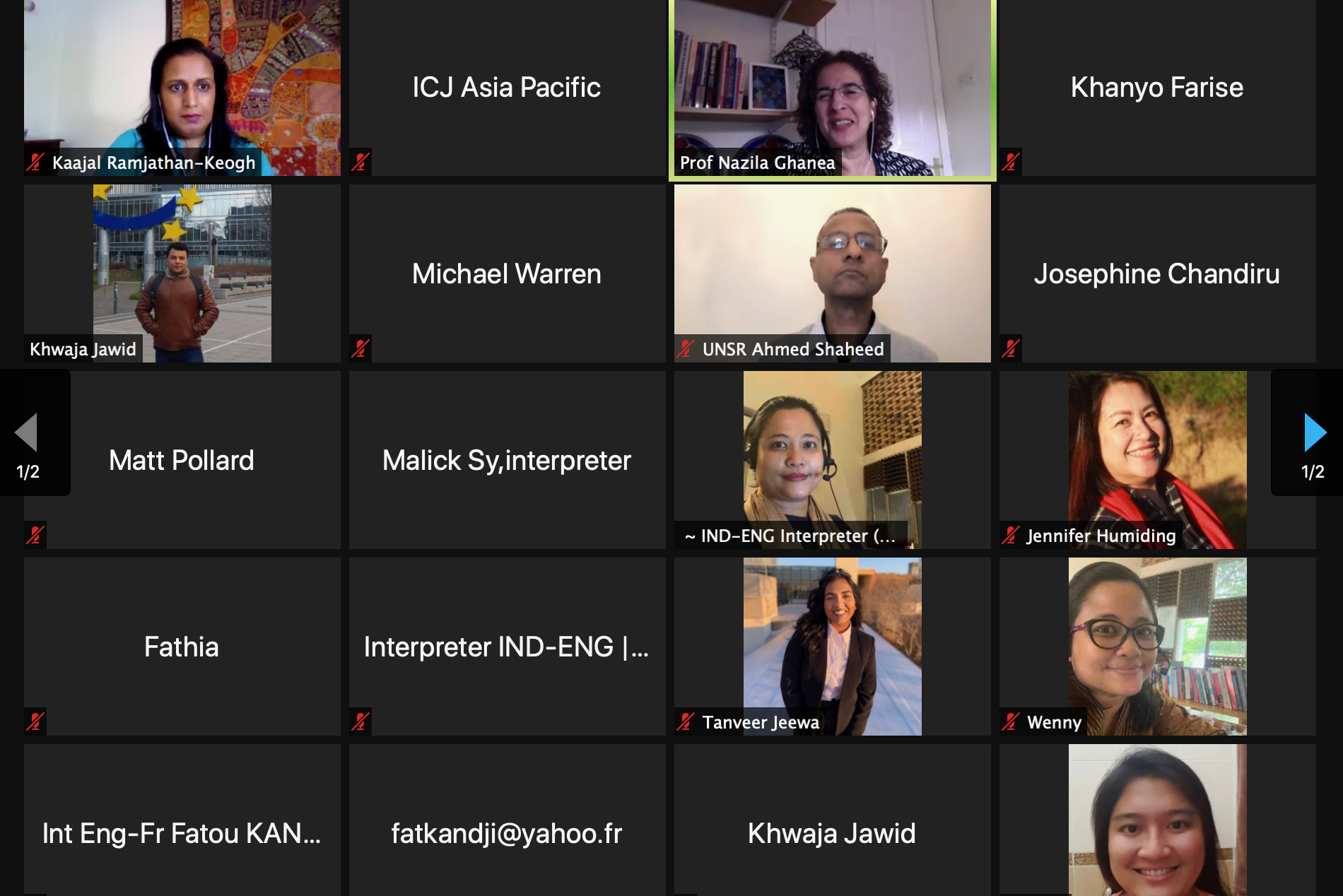Today the ICJ in collaboration with Cordaid issued a report on a webinar series held on 21-22 October 2020 on enhancing access to justice for women in the context of religious and customary laws.
The Webinar discussions aimed to address the challenges of existing inequalities and discrimination experienced by women, girls and persons from other marginalized groups that have intensified amidst a wider increase in attacks worldwide on the rule of law.
The webinar platform served to facilitate exchange of views and strategies among human rights defenders, justice sector actors and persons from the religious community.
Webinar 1 grappled with what are often perceived as conflict between women’s human rights and pathways to justice based on custom and religion.
Webinar 2 involved a discussion of obligations under international human rights law and best practice to ensure access to justice in cultural and religious contexts.
Participants came from Asia, the Middle East and Africa, and exchanged experiences, expertise and perspective on ensuring gender equality and eliminating gender discrimination in the context of custom and religion. The key challenges identified when accessing justice in contexts where customary and religious laws are prevalent include:
- Many women live in situations where laws and policies operate to discriminate against women and there are serious deficiencies exist in the legal protection of women’s human rights and women’s ability to access justice.
- In some places, the plurality of customary and religious laws themselves contribute to a lack of equality among women and hinders access to justice for women.
- Poverty and lack of knowledge of human rights also contribute to inhibiting women from seeking or receiving justice .
- Negative experiences when interacting with justice systems also discourage women from further engaging with the system, and is a barrier to access to justice.
Some preliminary conclusions and recommendations identified through the webinar series include the following:
- All justice actors should understand that under international human rights law the objective of maintaining or promoting particular traditions, customs or religions, is not alone a valid basis for restricting, let alone violating, human rights.
- Human rights actors should continuously seek opportunities for communication and engagement with informal justice systems.
- Religious laws and customary laws can change over time to give effect to women’s access to justice, whether in response to internal or external factors or both.
- Women should be empowered and have a good understanding of their legal status and demanding their rights.
- It is important to build and expand strategic alliances between formal and informal systems to promote access to justice for women.
Contact
Nokukhanya (Khanyo) Farisè, Legal Adviser (Africa Regional Programme), e: nokukhanya.farise(a)icj.org
Tanveer Jeewa, Communications Officer (Africa Regional Programme), e: tanveer.jeewa(a)icj.org
Download
Universal-Webinars a2J women-Advocacy-2021-ENG (full report in English, PDF)
Universal-Webinars a2J women-Advocacy-2021-FRE (full report in French, PDF)
Universal-Webinars a2J women-Advocacy-2021-IND (full report in Indonesian, PDF)
Universal-Webinars a2J women-Advocacy-2021-DAR (full report in Dari, PDF)
Universal-ICJ The Tunis Declaration-Advocacy-2019-ENG (the Tunis Declaration, in PDF)
Universal-ICJ Congresses-Publications-Reports-2019-ENG (the ICJ Congresses booklet, in PDF)
Watch
The first webinar is available here.
The second webinar is available here.
Read also
The report on the Tunis Declaration is available here.
Cordaid, Diverse Pathways to Justice for all: Supporting everyday justice providers to achieve SDG16.3, September 2019, available here.
ICJ/Cordaid Webinar Series addresses the need for equal access to justice for women where religious and customary laws are in force, available here.





